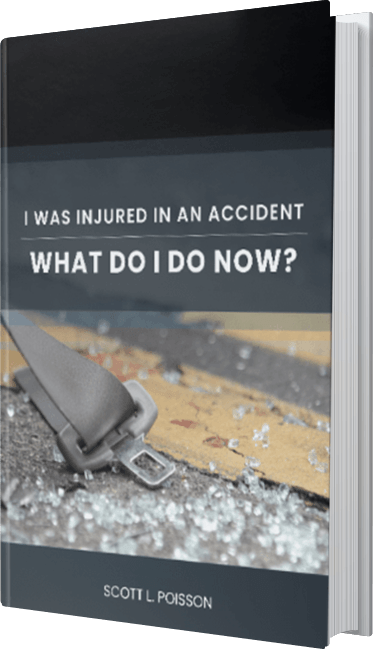The Legal Considerations of Filing a Wrongful Death Claim in Nevada
August 12, 2023

What Are the Legal Considerations of Filing a Wrongful Death Claim in Nevada?
Losing a loved one is an incredibly difficult experience, and the pain can be even more profound when their death was caused by someone else’s negligence or intentional actions. In such cases, filing a wrongful death claim can provide some measure of justice and financial compensation for the surviving family members. If you find yourself in this unfortunate situation in Nevada, it’s crucial to understand the legal considerations involved in pursuing a wrongful death claim.
What Is a Wrongful Death Claim?
Before delving into the specifics of Nevada law, let’s start with a basic understanding of what constitutes a wrongful death claim. In legal terms, a wrongful death claim arises when a person’s death is caused by the negligent, reckless, or intentional actions of another individual, company, or entity.

The purpose of such a claim is to hold the responsible party accountable for their actions and provide compensation to the surviving family members for the damages they have suffered as a result of the death.
What Are Some Relevant Laws?
In Nevada, the laws governing wrongful death claims are outlined in the Nevada Revised Statutes (NRS) Chapter 41. These laws establish the legal framework for pursuing a claim and provide guidelines for the compensation that may be awarded. It’s important to note that only certain individuals are eligible to file a wrongful death claim in Nevada. Generally, the surviving spouse, children, or parents of the deceased have the right to bring a claim. If none of these individuals exist, the personal representative of the deceased’s estate may file the claim on behalf of the estate and any other potential beneficiaries.
Nevada law also imposes a statute of limitations on wrongful death claims. This means that there is a specific time limit within which a claim must be filed. In Nevada, the statute of limitations for wrongful death claims is two years from the date of the deceased person’s death. Failing to file a claim within this timeframe may result in the loss of your right to seek compensation.
How Does the Legal Process Work?
The legal process for filing a wrongful death claim in Nevada typically involves several steps. Firstly, it’s crucial to gather all relevant evidence that supports your claim. This may include medical records, accident reports, witness statements, and any other documentation that can establish the negligence or wrongdoing of the responsible party.
Once the evidence is collected, you will need to file a complaint in the appropriate Nevada court. The complaint should outline the details of the wrongful death, the parties involved, and the damages being sought. The defendant(s) will then be served with the complaint and have an opportunity to respond.

Throughout the litigation process, both parties will engage in discovery, which involves exchanging information and evidence. This may include written questions, document requests, and depositions. In some cases, the parties may also attempt to reach a settlement through negotiation or mediation. If a settlement cannot be reached, the case will proceed to trial, where a judge or jury will determine the outcome.
What Damages Can Be Recovered?
When pursuing a wrongful death claim in Nevada, various types of damages may be recoverable. These can include economic damages, such as medical expenses, funeral costs, and loss of financial support.
Non-economic damages, such as pain and suffering, loss of companionship, and emotional distress, may also be awarded. Additionally, in certain cases involving particularly egregious conduct, punitive damages may be available to punish the responsible party and deter similar behavior in the future.
Nevada follows the principle of comparative negligence. This means that the amount of damages awarded may be reduced if the deceased person was partially at fault for the incident that led to their death. For example, if the court determines that the deceased person was 20% at fault, the damages awarded would be reduced by 20%.
How Can an Experienced Lawyer Help?
Navigating the legal complexities of a wrongful death claim can be overwhelming, especially while dealing with the emotional aftermath of losing a loved one. Hiring an experienced lawyer who specializes in wrongful death cases can provide invaluable support and guidance throughout the process.

A knowledgeable attorney will have a deep understanding of Nevada’s wrongful death laws and can help you build a strong case by gathering evidence, interviewing witnesses, and working with expert witnesses if necessary. They will also handle all the legal paperwork, ensure that deadlines are met, and negotiate with insurance companies or opposing counsel on your behalf.
Furthermore, an experienced lawyer will fight tirelessly to protect your rights and pursue the maximum compensation you deserve. They will advocate for your best interests during settlement negotiations and, if needed, present a compelling case in court to secure a favorable verdict.
If you have lost a loved one due to someone else’s negligence or intentional actions in Nevada, call High Stakes Injury Law at (702) 707-5934 for a free case evaluation.
Get A 100% Free Case Evaluation
From A Top-Rated Personal Injury Attorney
Call: (702) 707-5934 or Contact Us Online
$9M
Settlement / Auto Accident
$5.1M
Settlement / Tire Explosion
$3M
Settlement / Truck Accident
01
02
03
04

I Was Injured In An Accident.
What Do I Do Now?
By Scott L. Poisson

Do I Have A Case?

Dealing With The Insurance Company

When a Lawsuit Is Filed

Overcoming Common Defense Themes

Special Considerations in Specific Types of Cases
